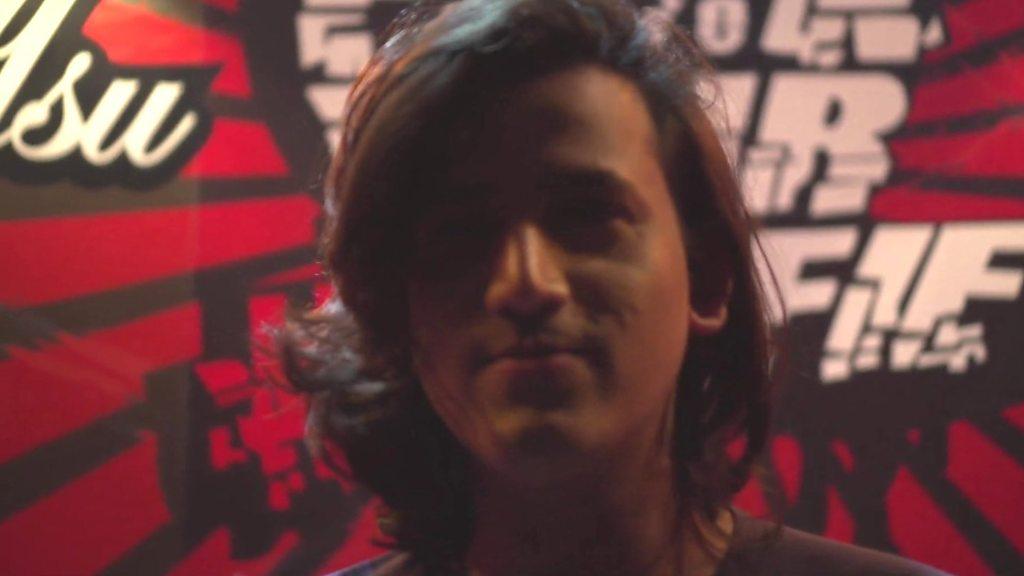LGBT in India: What it's like six months after gay sex was decriminalised
- Published
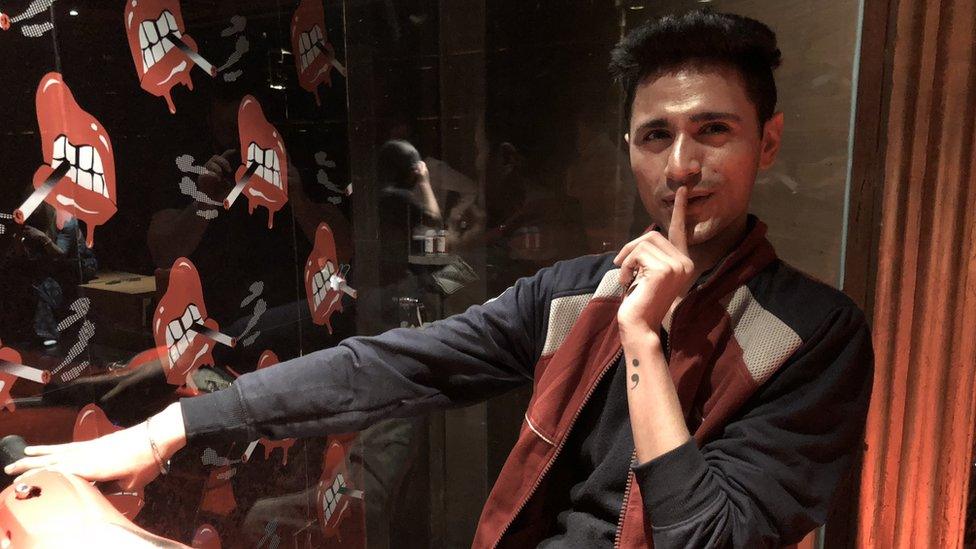
Nitish Anand - known to his friends as Tish - is believed to be India's youngest drag queen at the age of 20
Up until six months ago, 20-year-old Tish felt like a criminal.
He faced long-term prison time in India because he was an out and proud gay man, but then his life changed.
Gay sex was decriminalised by the Indian Supreme Court on 6 September 2018.
It overturned a 2013 judgement that upheld a 157-year-old law dating back to British rule.
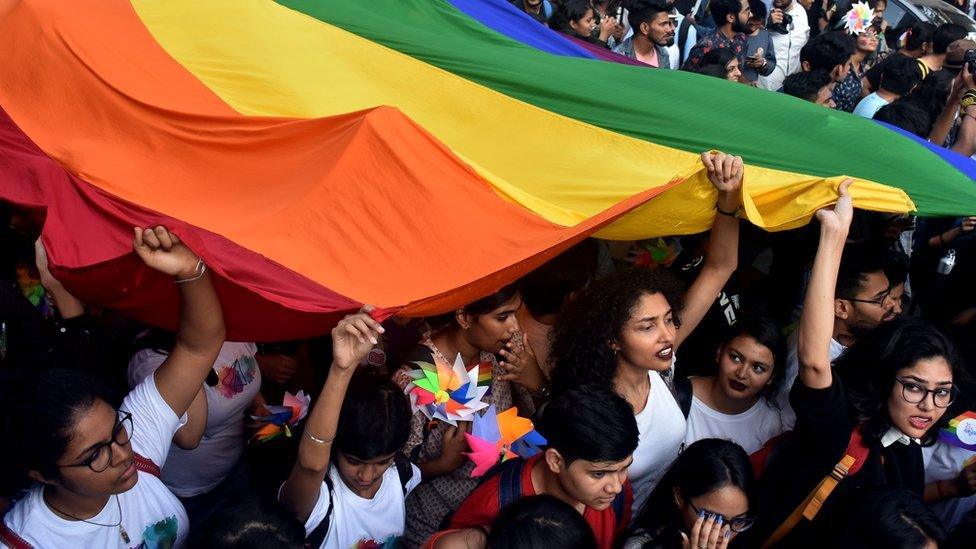
People holding an LGBT rainbow flag at Mumbai's first ever pride march
There were celebrations across India when the ruling came through but Tish was crying - because he'd just split up with his boyfriend.
"But then I remembered I was no longer a criminal," he tells Radio 1 Newsbeat, laughing.
"I always felt caged and restricted within my soul."
Tish says more cafes and bars in Delhi have become LGBT-friendly by putting up rainbow flags - but that doesn't necessarily mean the public have changed their attitudes.
"India should create a space where I'd actually be able to make my family understand that it's normal," he explains.
He says he hopes eventually he'll not always feel "caged" and be able "to take pride to go out as who I actually am - and not as a person who should stay in the closet because I already spent a lot of time being fabulous there."
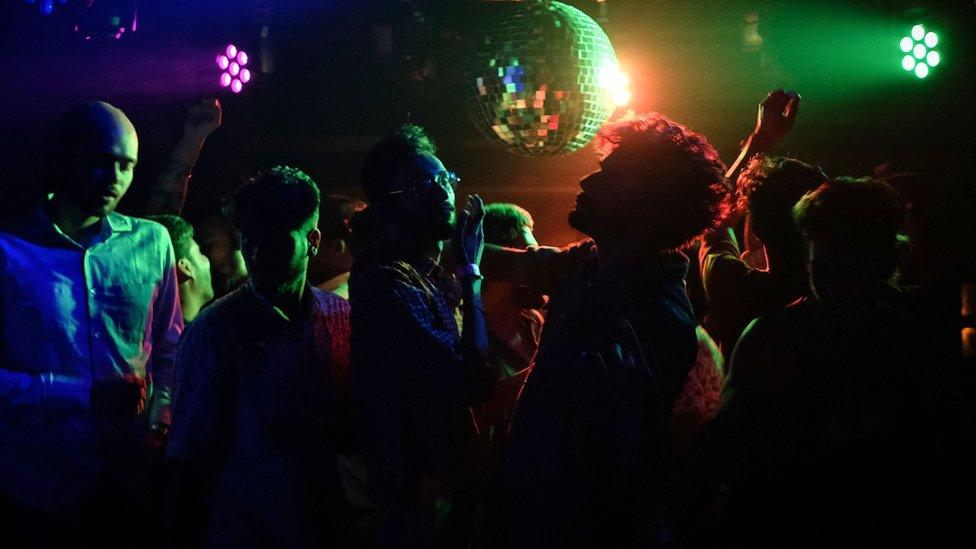
Kitty Su is one of the main LGBT nightlcubs in Delhi. It's in the basement of a five-star hotel
Tish regularly parties at gay club Kitty Su but says he's sometimes nervous when he leaves the venue as homophobic people know "what we are" so could attack him in surrounding streets.
The club is owned by by Keeshav Suri - a prominent gay businessman - who was one of the the Supreme Court petitioners that helped change section 377, the colonial-era law.
"I was in a position where I had to acknowledge my privilege and bring this conversation to policy makers," Keeshav tells Newsbeat.
"It hasn't fixed everything. It will take time as it's a very small step in a much larger fight for equality."
Keeshav says as well as changing society, the law also has economic benefits because of LGBT tourism.
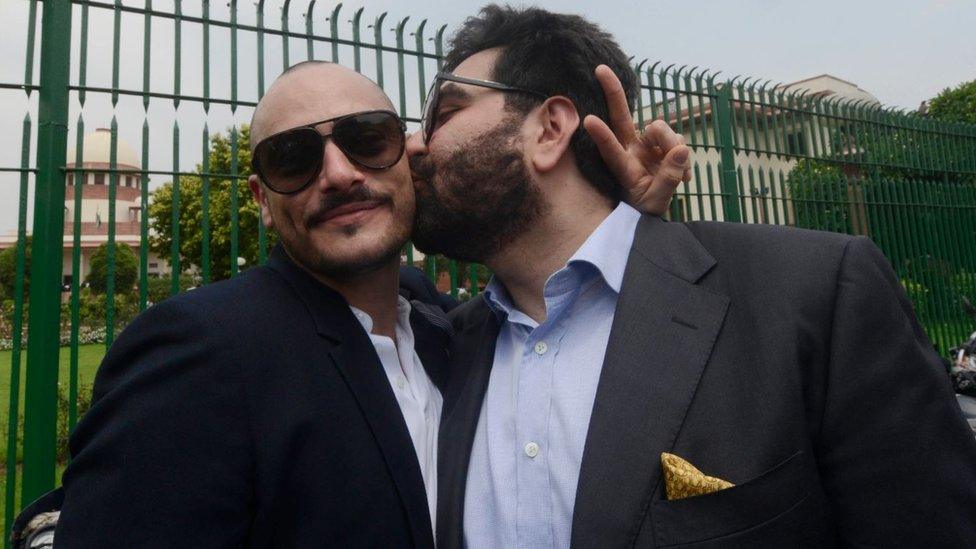
Keeshav Suri celebrating the change in ruling outside the Supreme Court with his French husband Cyril Feuillebois
He says in the past six months that's changed - and not just with international visitors.
"Recently an Indian couple stayed who said for the first time they went to reception and said 'We're a couple and we don't want a twin bed, we want a king size bed.'
"They said: 'We're here as a couple and we want to be recognised as a couple.'"
Despite those small steps, there's "still a need for acceptance", one of India's top LGBT organisations believes.
"Many people still have the mentality that homosexuality is wrong," says Kiran Bobby from the Naz Foundation.
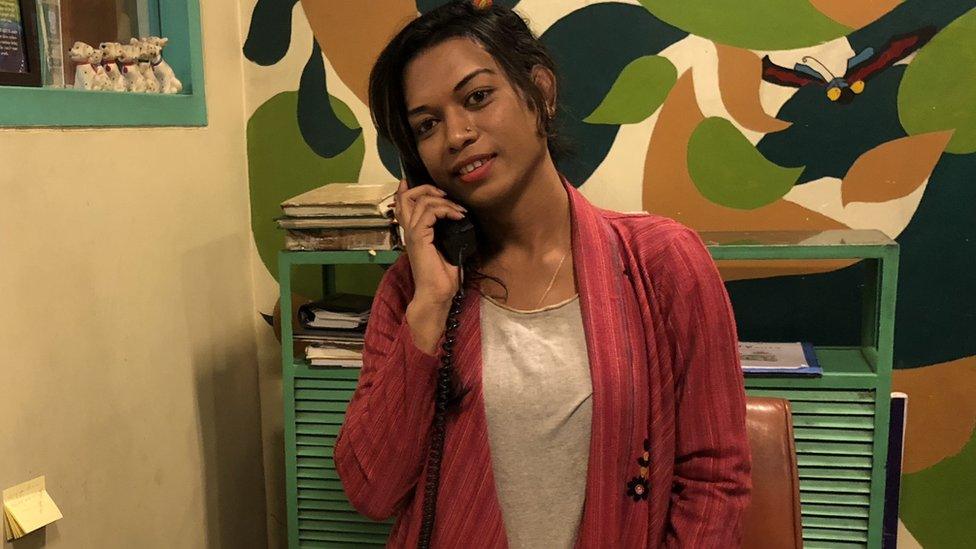
Kiran works at the Naz Foundation in Delhi which supports members of the LGBT community
Section 377 ruled that gay sex was an "unnatural offence", but the court ruled discrimination on the basis of sexual orientation is a fundamental violation of rights.
"We're still fighting for our rights," Kiran tells Newsbeat.
She, like many members of India's LGBT community, believes there's still a long way to go for representation in the country.
"We need marriage rights, we need rights to adopt."
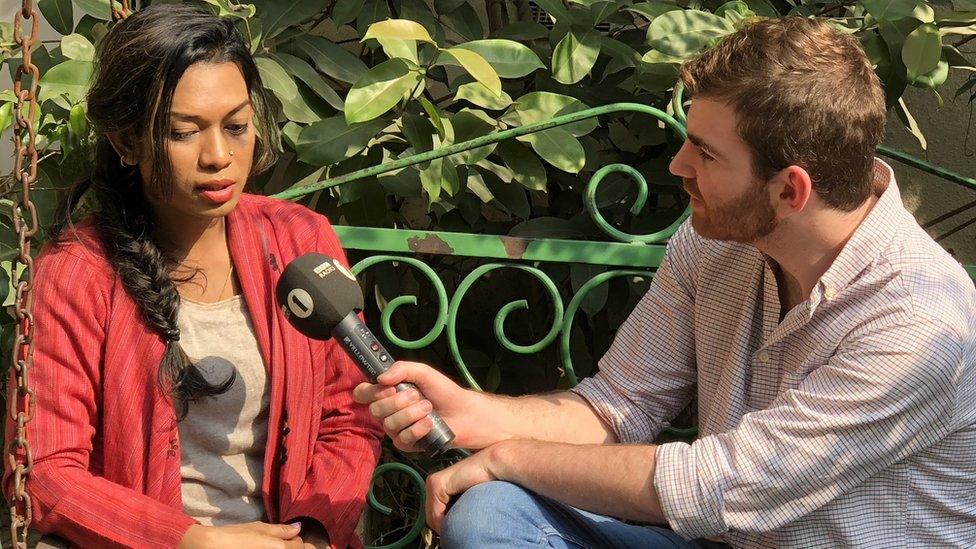
Kiran, who is transgender, says she doesn't always feel safe in Delhi as most people think she's a sex worker
The change in law does mean "many lesbian and gay people are starting to disclose their sexuality to their parents", Kiran explains.
"But there's a double standard. Some people will accept having LGBT friends but they won't accept their relatives who come out."
Last year a Thomson Reuters Foundation survey ranked India as the world's most dangerous country for women, coming out worst for sexual violence.
Kiran says it can be dangerous to be transgender in India's capital and won't always attend celebrations, or visit certain areas.
"Five boys tried to pull me into a car on New Year's Eve," she explains.
"I think they were trying to rape me but I pushed the door open and ran away.
"It really scared me."
Follow Newsbeat on Instagram, external, Facebook, external and Twitter, external.
Listen to Newsbeat live at 12:45 and 17:45 every weekday on BBC Radio 1 and 1Xtra - if you miss us you can listen back here.
- Published6 September 2018
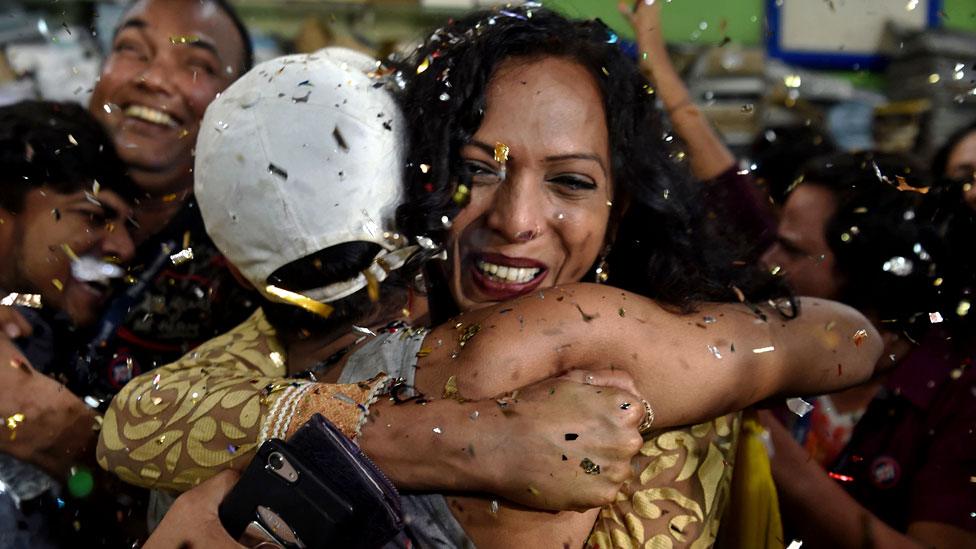
- Published3 April 2019
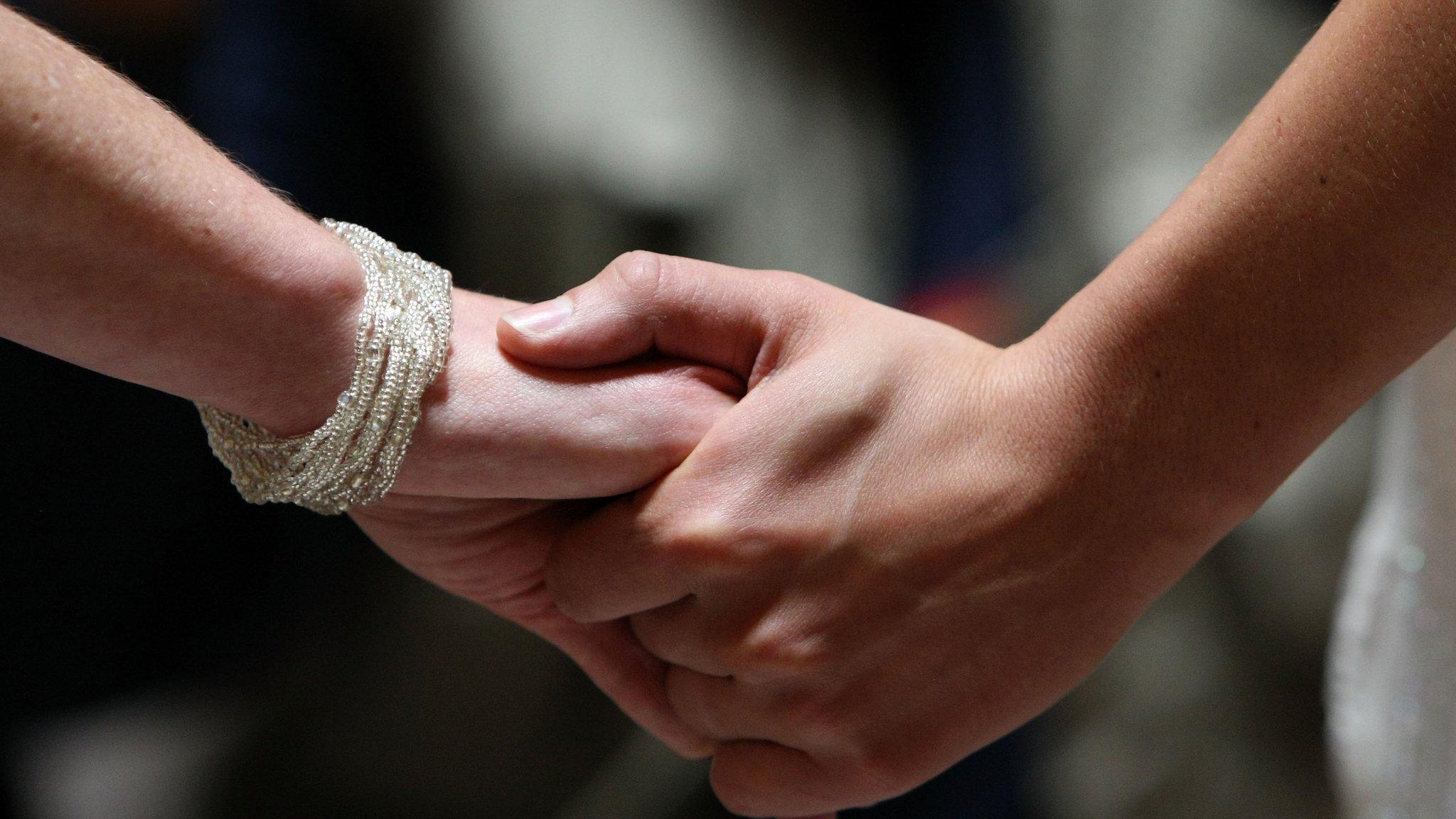
- Published31 December 2018
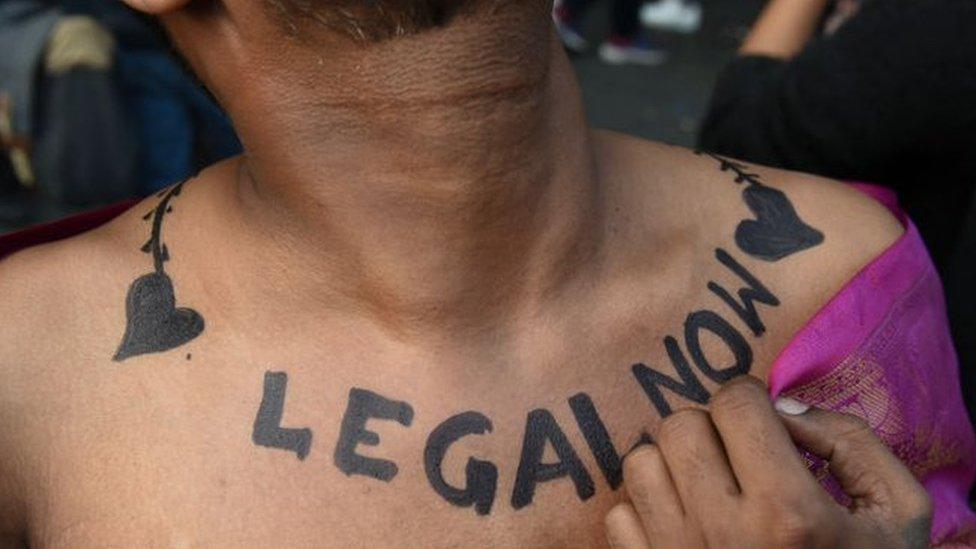
- Published7 September 2018
